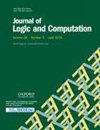Operating Room Scheduling via Answer Set Programming: improved encoding and test on real data
IF 0.7
4区 数学
Q3 COMPUTER SCIENCE, THEORY & METHODS
引用次数: 0
Abstract
The Operating Room Scheduling (ORS) problem deals with the optimization of daily operating room surgery schedules. It is a challenging problem subject to many constraints, like to determine the starting time of different surgeries and allocating the required resources, including the availability of beds in different units. In the past years, Answer Set Programming (ASP) has been successfully employed for addressing and solving the ORS problem. Despite its importance, due to the inherent difficulty of retrieving real data, all the analyses on ORS ASP encodings have been performed on synthetic data so far. In this paper, first we present a new, improved ASP encoding for the ORS problem. Then, we deal with the real case of ASL1 Liguria, an Italian health authority operating through three hospitals, and present adaptations of the ASP encodings to deal with the real-world data. Further, we analyse the resulting encodings on hospital scheduling data by ASL1 Liguria. Results on some scenarios show that the ASP solutions produce satisfying schedules also when applied to such challenging, real data.1通过答案集编程进行手术室调度:改进编码并在真实数据上进行测试
手术室调度(ORS)问题涉及手术室每日手术时间表的优化。这是一个具有挑战性的问题,受到许多约束条件的限制,如确定不同手术的开始时间和分配所需资源,包括不同科室的床位供应情况。在过去几年中,答案集编程(ASP)已被成功用于处理和解决 ORS 问题。尽管其重要性不言而喻,但由于检索真实数据的固有困难,迄今为止,所有关于 ORS ASP 编码的分析都是在合成数据上进行的。在本文中,我们首先针对 ORS 问题提出了一种新的、改进的 ASP 编码。然后,我们处理了 ASL1 Liguria 的真实案例(ASL1 Liguria 是意大利的一个卫生机构,通过三家医院运营),并介绍了 ASP 编码的调整,以处理真实世界的数据。此外,我们还对 ASL1 Liguria 的医院调度数据进行了分析。一些场景的结果表明,ASP 解决方案在应用于此类具有挑战性的真实数据时,也能产生令人满意的日程安排1。
本文章由计算机程序翻译,如有差异,请以英文原文为准。
求助全文
约1分钟内获得全文
求助全文
来源期刊

Journal of Logic and Computation
工程技术-计算机:理论方法
CiteScore
1.90
自引率
14.30%
发文量
82
审稿时长
6-12 weeks
期刊介绍:
Logic has found application in virtually all aspects of Information Technology, from software engineering and hardware to programming and artificial intelligence. Indeed, logic, artificial intelligence and theoretical computing are influencing each other to the extent that a new interdisciplinary area of Logic and Computation is emerging.
The Journal of Logic and Computation aims to promote the growth of logic and computing, including, among others, the following areas of interest: Logical Systems, such as classical and non-classical logic, constructive logic, categorical logic, modal logic, type theory, feasible maths.... Logical issues in logic programming, knowledge-based systems and automated reasoning; logical issues in knowledge representation, such as non-monotonic reasoning and systems of knowledge and belief; logics and semantics of programming; specification and verification of programs and systems; applications of logic in hardware and VLSI, natural language, concurrent computation, planning, and databases. The bulk of the content is technical scientific papers, although letters, reviews, and discussions, as well as relevant conference reviews, are included.
 求助内容:
求助内容: 应助结果提醒方式:
应助结果提醒方式:


